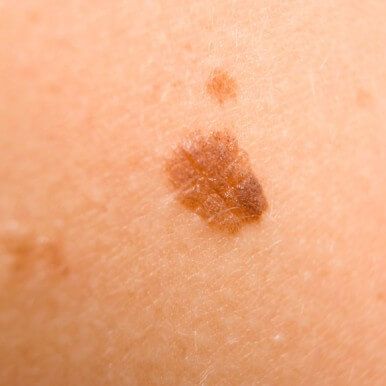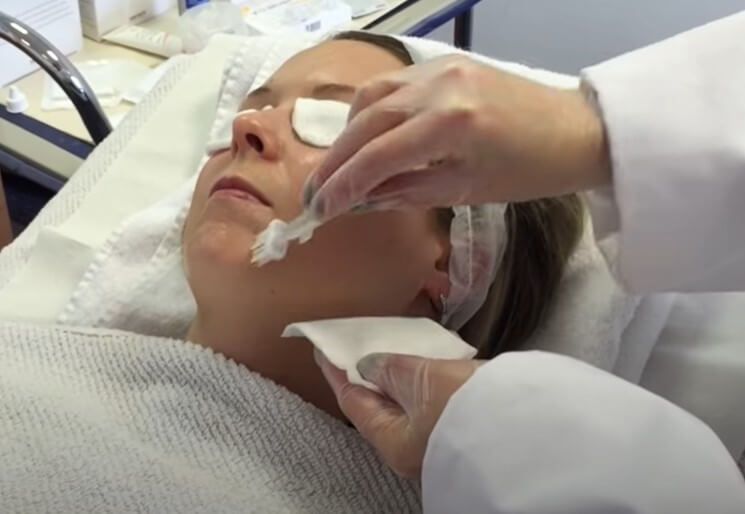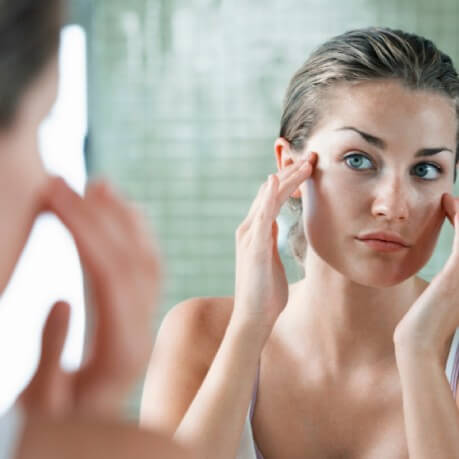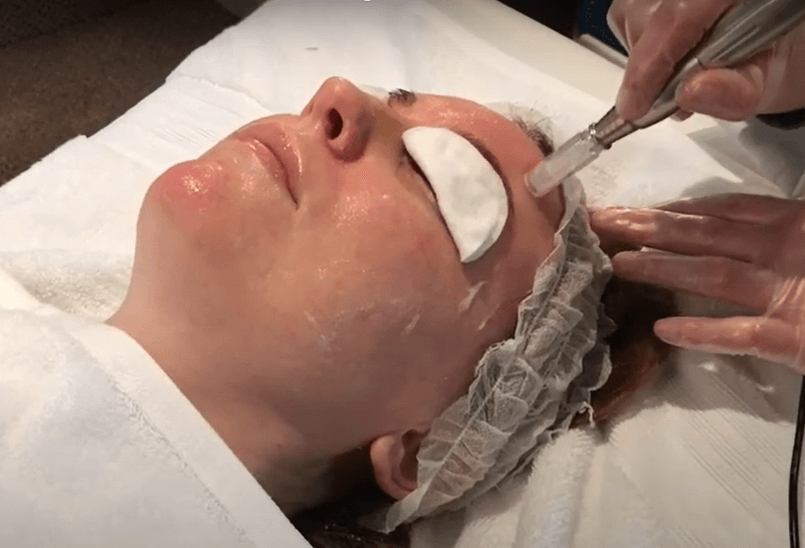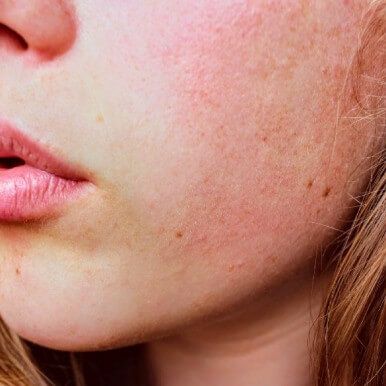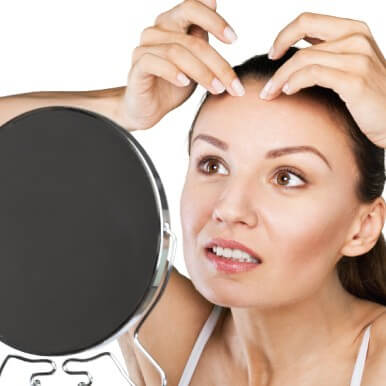Acne and Rosacea Association UK
Online Training & Accreditation
Professor Tony Chu teaches unique specialist treatments for acne
you can implemention your practice in this step by step accreditation program.
40+ Years of Experience
Learners
Attributed CPD study time
Why Learn To Treat Acne
and Rosacea In Your Practice?
More Clients
There is a 7 million subset of women over 35 with acne and rosacea in the UK which when you attract them and successfully treat them many become your long term aesthetic injectable clients
Unique Expertise
A whole new set of treatment modalities for acne and rosacea and also unique scar treatments, plus solutions for melasma, chloasma and macrocomedones
Help More People
There is a lack of medical help for millions of people in this situation that goes beyond the aesthetic needs. All of these are medical aesthetic issues.
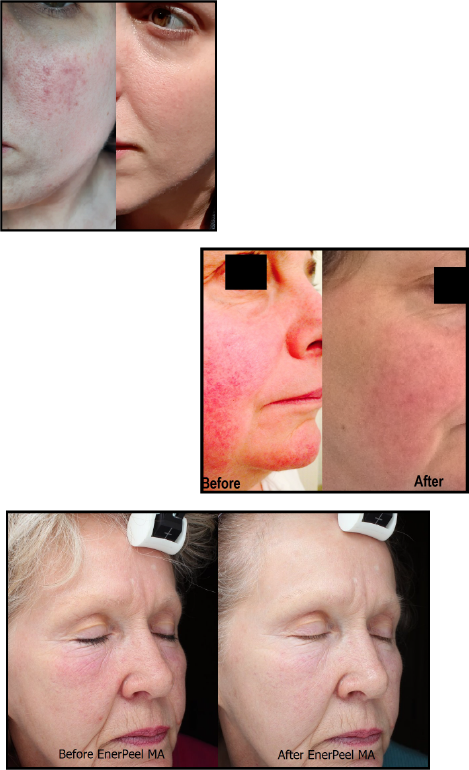
Course Overview
It highlights the importance of the development of the microcomedone, the primary lesion of acne and the importance of targeting this for optimal treatment of acne. It demonstrates the Cutibacterium acnes biofilm and its impact on treatment efficacy and describes the age groups affected by acne which effectively spans from puberty to old age. It details the treatment options for the acne sufferer and the problems including bioavailability of antibiotics and the side effects of oral isotretinoin and hormonal treatments in women.
Modules: 4 modules
Here Is What's In The Program
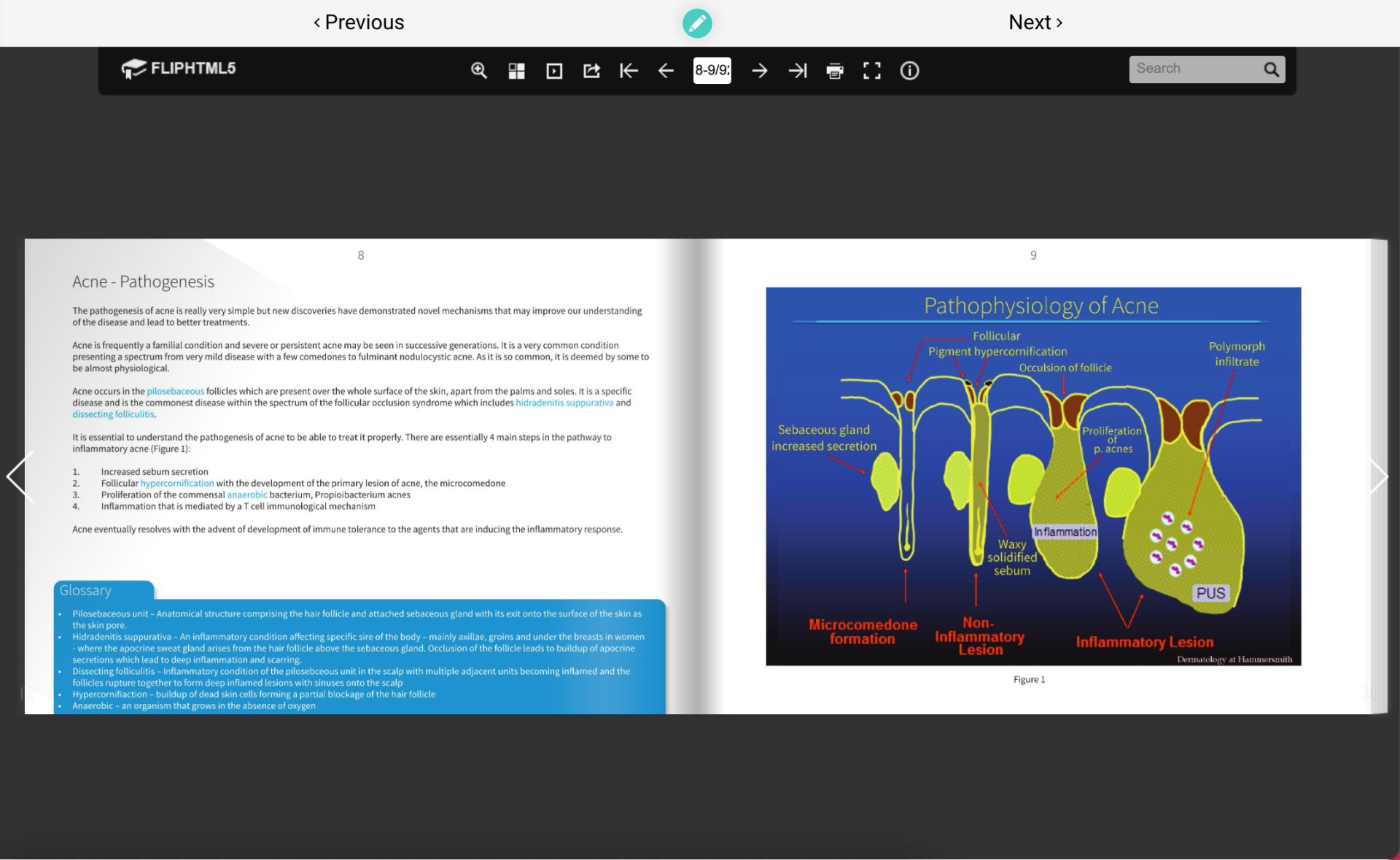
Training Manual
This is your companion manual to use throughout the course and get additional information for each modules of the program
Module 1: Acne Pathogenesis & Conventional Treatments
This module details the pathogenesis of acne and the conventional treatments of acne. It highlights the importance of the development of the microcomedone, the primary lesion of acne and the importance of targeting this for optimal treatment of acne. It demonstrates the Propioibacterium acnes biofilm and its impact on treatment efficacy and describes the age groups affected by acne which effectively spans from puberty to old age.
It details the treatment options for the acne sufferer and the problems including bioavailabilty of antibiotics and the side effects of oral isotretinoin and hormonal treatments in women.
It details the treatment options for the acne sufferer and the problems including bioavailabilty of antibiotics and the side effects of oral isotretinoin and hormonal treatments in women.
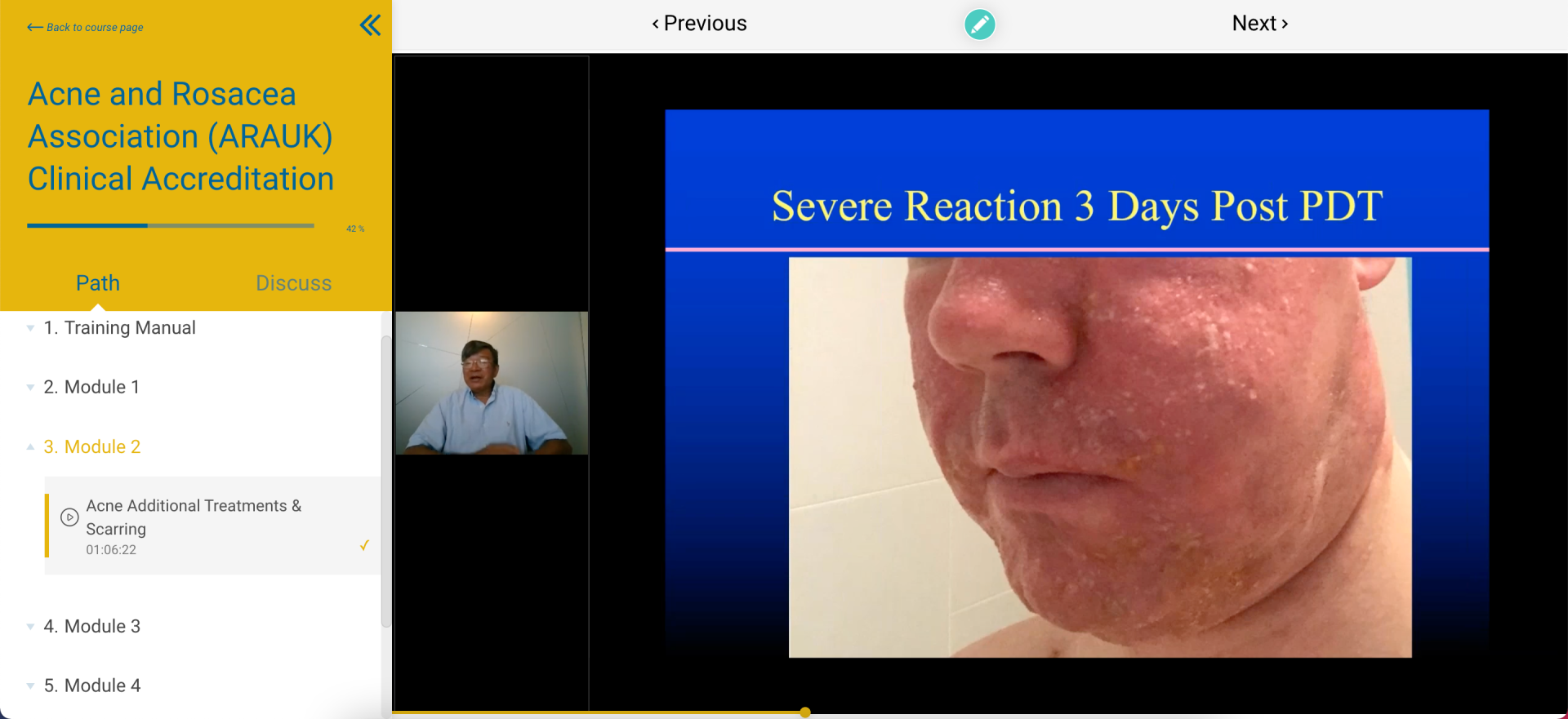
Module 2: Acne Additional Treatments & Scarring
This module highlights the problems faced with the macrocomedone and treatment of this and acne cysts. It discusses the efficacy and place for chemical peels and light and laser treatments of acne.
It then describes the different types of scarring seen in acne and the various treatments available to improve acne scars. It then gives advice for acne sufferers on facial scrubs, moisturisers and other cosmetics.
It then describes the different types of scarring seen in acne and the various treatments available to improve acne scars. It then gives advice for acne sufferers on facial scrubs, moisturisers and other cosmetics.
Module 3: Rosacea
This module is devoted to rosacea, detailing the different theories on its pathogenesis and current treatments available. It stresses the fact that not all red faces are rosacea and the primary abnormality – prolonged facial flushing – must be present to make the diagnosis.
Treatment is split into that for inflammatory, Type 2 rosacea and pure vascular or Type 1 rosacea. It stresses the fact that facial flushing does not respond to topical or oral antibiotics and flushing must be controlled for effective treatment of rosacea.
Oral and topical agents effective in vascular rosacea are discussed as is the role of laser therapy.
Treatment is split into that for inflammatory, Type 2 rosacea and pure vascular or Type 1 rosacea. It stresses the fact that facial flushing does not respond to topical or oral antibiotics and flushing must be controlled for effective treatment of rosacea.
Oral and topical agents effective in vascular rosacea are discussed as is the role of laser therapy.
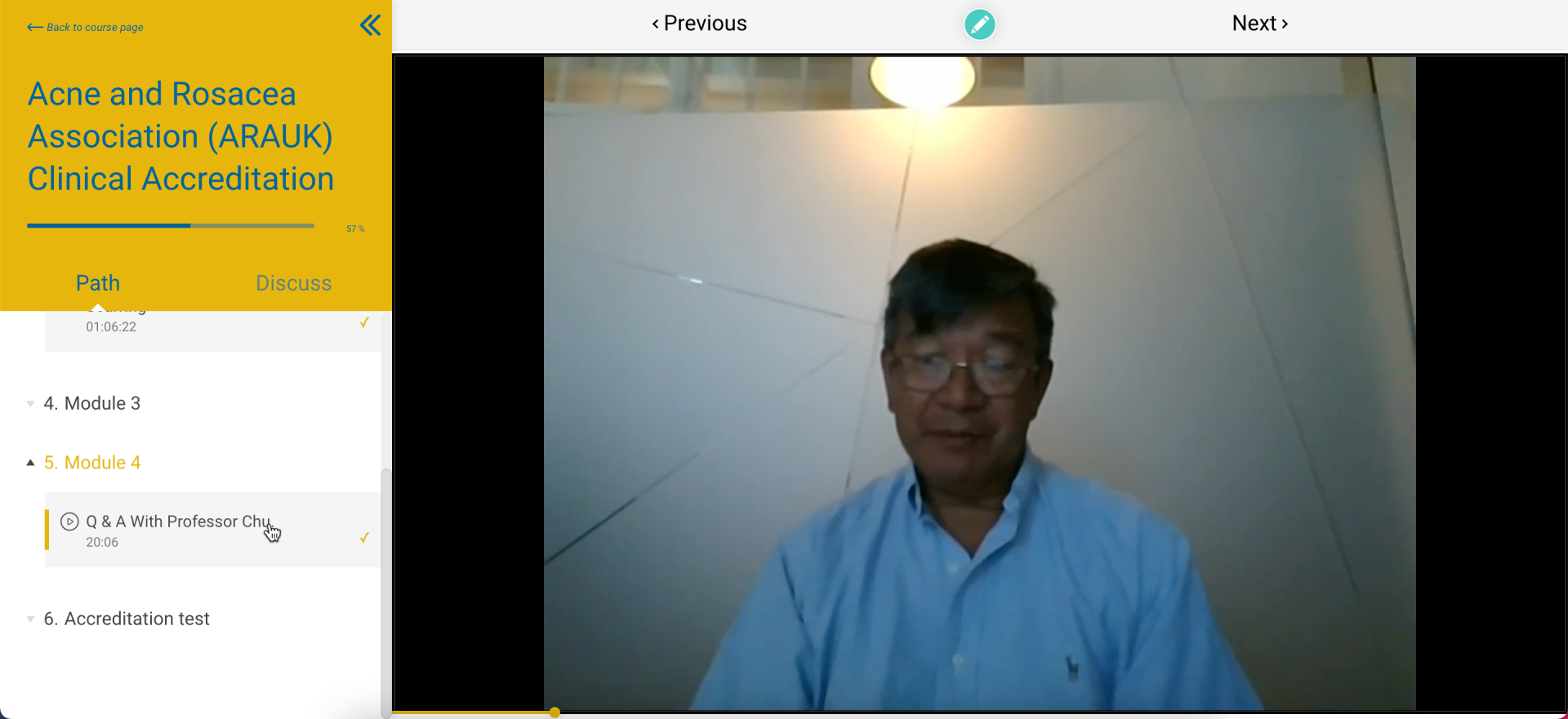
Module 4: Q & A With Professor Chu
Module 4 is a recording of a live Q&A session with Professor Chu. This was devoted to questions posed by participants which were individually answered by Prof Chu.
2 Knowledge Reviews
150 questions, all must be answered. +1 mark for a correct answer and -1 mark for incorrect. Total correct answers must be at or above 120 to achieve 60% pass mark score of 90 points. Pass mark is high to ensure safety and accuracy of treatment. Merit and Distinction awards achievable.
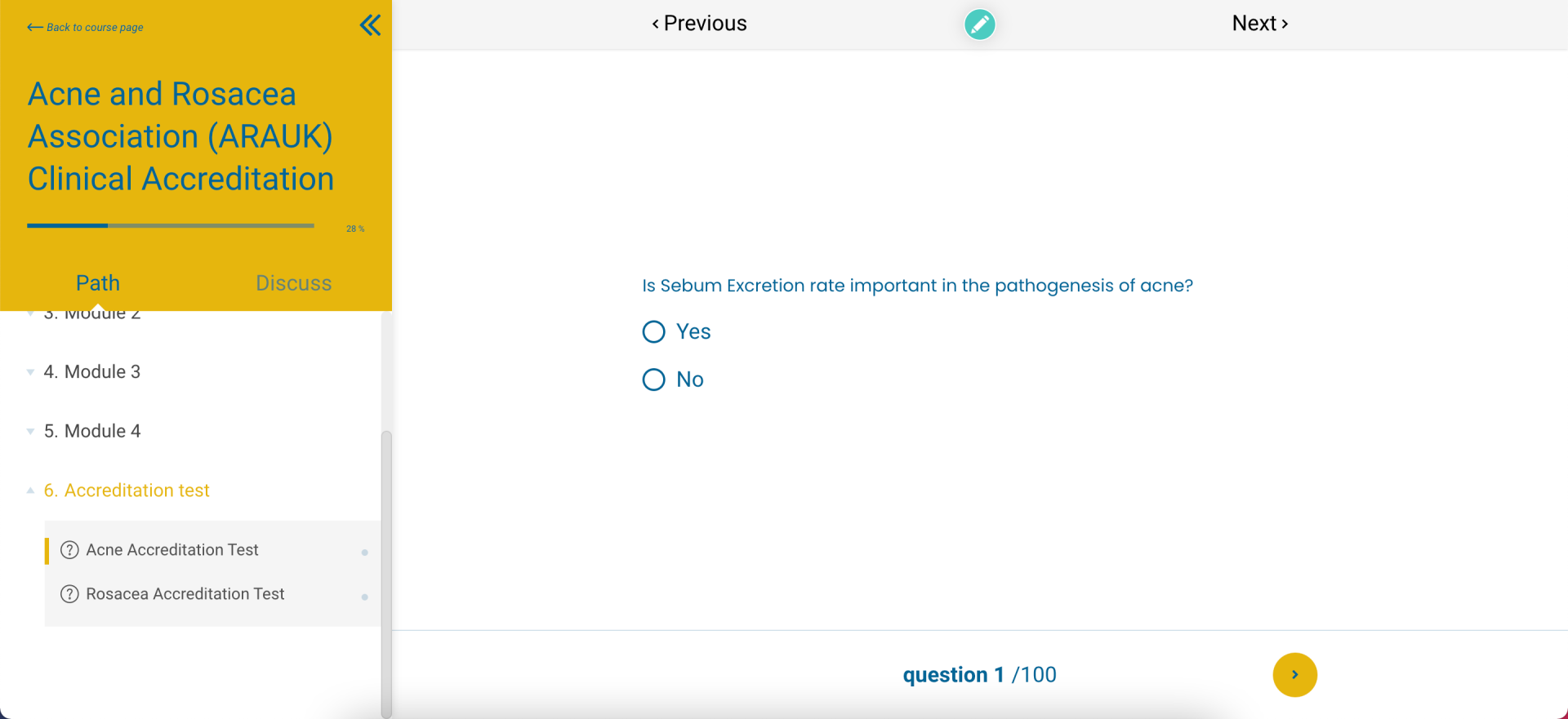
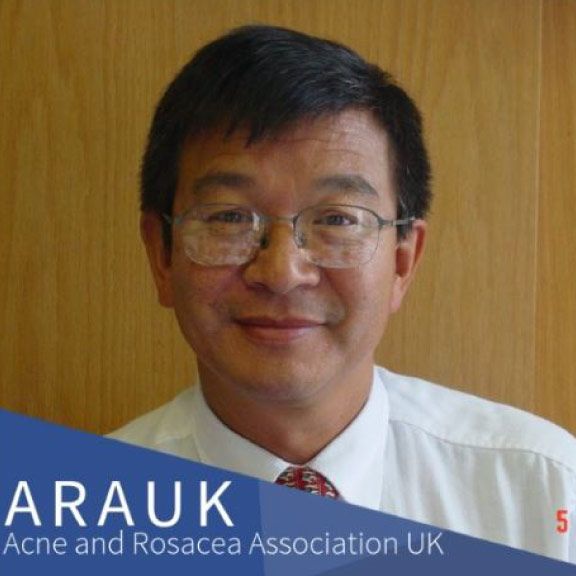
MEET THE INSTRUCTor - Who is the Professor Chu
Professor Tony Chu, FRCP
Prof Chu trained at Guys Hospital, London, qualifying in 1975. He started his dermatology training at Guy’s Hospital and after a research sabbatical year at Columbia Presbyterian Hospital in New York in 1980, he completed has dermatology training at St Johns Hospital for Diseases of the Skin in London. In 1982, he was awarded a Welcome Senior Research Fellowship and was appointed as a Senior Lecturer/Honorary Consultant Dermatologist at the Royal Postgraduate Medical School, Hammersmith Hospital and Consultant Dermatologist at Ealing Hospital. He retired from the NHS in 2017 having pioneered the NLite laser treatment for acne and percutaneous collagen production for acne scarring.He is also Professor of Dermatological Oncology, University of Buckingham.
In addition to running a busy clinical service, Prof. Chu ran an investigative laboratory studying skin carcinogenesisis, the immunobiology of acne and the Langerhans cell in physiological states and in the disease Langerhans cell histiocytosis.He was the founder of the Acne Support Group which was the first UK charity for acne and rosacea but stepped down as chairman of the charity in 1999 when his wife presented him with triplets. The ASG unfortunately folded and approaching retirement he saw the real need for a charity for acne and rosacea sufferers to provide information and support for the sufferers and education for doctors and pharmacists and started the Acne and Rosacea Association UK.
In addition to running a busy clinical service, Prof. Chu ran an investigative laboratory studying skin carcinogenesisis, the immunobiology of acne and the Langerhans cell in physiological states and in the disease Langerhans cell histiocytosis.He was the founder of the Acne Support Group which was the first UK charity for acne and rosacea but stepped down as chairman of the charity in 1999 when his wife presented him with triplets. The ASG unfortunately folded and approaching retirement he saw the real need for a charity for acne and rosacea sufferers to provide information and support for the sufferers and education for doctors and pharmacists and started the Acne and Rosacea Association UK.
